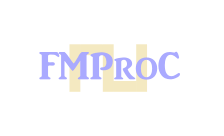
We take further our discussion about Family Medicine Professional Choices FMProC/CProMF (Choix professionnels en Médecine de famille) to an area which is quite common to encounter in the daily life of a FM PGY1, communication with patients and their families. One of the most challenging aspect in family medicine is the ability of the clinician to listen to what patients have to say with compassion, deal with angry relatives tactfully, and state his/her clinical opinion empathically.
in the following example, we see how this can be achieved effectively and efficiently.
Question:
You are seeing your patient as a follow-up after he had a chest infection. He is a long-term smoker with clinically diagnosed emphysema. While you were speaking with him, you noticed him carrying a packet of cigarette, and on further sensitive questioning, you realized he is still actively smoking. How should you respond?
Rate the following responses on a scale of five 1 being the inappropriate, 2 least appropriate, 3 neutral, 4 appropriate, 5 very appropriate.
- do not discuss smoking further with patient as you have done in past with little or no effect
- explain again to the patient his smoking behaviour is putting his health and life under risk and contributing to the severity and frequency of his chest infections
- give your patient a few leaflets dedicated to stopping smoking
- prescribe nicorette for your patient
- tell your patient he must stop smoking or he will expire soon
Successful rating:
- inappropriate
- very appropriate
- appropriate
- least appropriate: as you need to explore their current ideas and motives in regards to smoking
- inappropriate
as a PGY1 and a future clinician, you are responsible to educate patients on health lifestyle, and negotiate with patient to take the responsibility of their own health. That's being said, you should also be respectful to their own autonomy and informed decisions.
